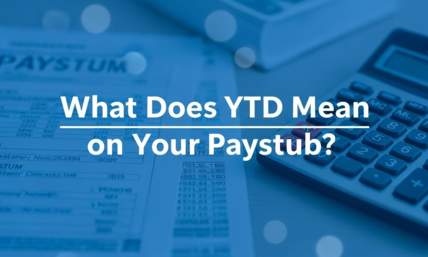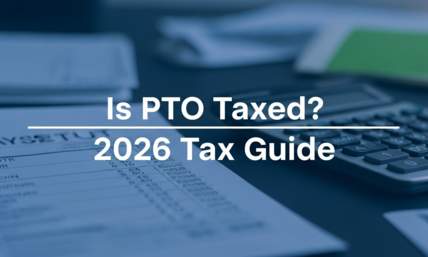What Is Not a Benefit of Having a Good Credit Score?
Today, having a great credit score makes you feel like you’ve got a golden ticket. Everybody goes on and on about it. It’s clear that the benefits of good credit have been well documented.
However, many people don’t really know what a good credit score actually means in real life. Quite a lot of consumers have misconceptions about the power of their credit scores.
Knowing what the limits are can help people plan their finances in a better way. It also helps to avoid being disappointed by the benefits enjoyed by the 740+ score owners.
Today, we’ll discuss “What is not a benefit of having a good credit score?”. So, you can manage your expectations.
What Are Credit Score Ranges?
Now, we shouldn’t just jump right into discussing what a good credit score will not do for you. Let us first understand what is considered good credit. There are two scoring models that are very popular. FICO and VantageScore. They both use three hundred to eight hundred and fifty points.
For FICO scores, exceptional credit is between 800 and 850. 740-799 will come under very good. Good is 670-739, 580-669 can be called fair, and anything less than 580 is poor. VantageScore uses slightly varied definitions. Superprime is 781-850, and prime is 661-780. Near prime is 601-66,0, and subprime includes all scores from 300-600.
From recent information, the mean FICO score in the United States is approximately 715 points. Most people in America are in the “good” category. When we speak of a “great credit score,” we usually mean credit scores over 740 or 750. The scores that enable you to access most premium financial products.
What Is Not a Benefit of Having a Good Credit Score?
Many consumers mistakenly think that the pursuit of a high credit score is the highest achievement in finance. They believe it will open all doors. This view, though understandable, ignores many limitations.
A high credit score is worth something. But it can almost as well be likened to a permission slip instead of a magic wand. Let us take a look at what a good credit score can’t do for you.
Loan Approvals
This is possibly the most prevalent misconception. Any loan you apply for will definitely be approved if you have a great credit score. Clearly, any score over 740 helps in increasing the chances. However, lenders consider many other parameters apart from your credit score.
Your debt-to-income ratio is very important when it comes to loan decisions. Some people may have a lot of debt compared to what they’re earning. Lenders don’t like this, and can reject the application despite your score.
Lending decisions also weigh the employment history and stability. Moreover, regulations also often require outside verification that exceeds credit scores. For instance, the Dodd-Frank Act mandates mortgage lenders to verify a borrower’s ability to repay. So, they would need to look at income documentation, assets, and more. Credit scores cannot give them all this information.
No Closing Costs
Another thick myth is that mortgage borrowers with good scores can get out of paying closing costs. This simply isn't true. Closing costs include necessary services used in the purchase of a home. It includes title searches, appraisals, attorney’s fees, and other taxes and insurance premiums.
The cost itself tends to run from 2% to 5% of the loan amount and is required either way. This is irrespective of the creditworthiness requirements. Of course, there are some lenders that advertise “no closing costs”. Such mortgages may add costs to the loan balance, which adds to your debt. Others may accept a higher interest rate to pay for them.
However, a great credit score will only make you eligible for some lender credits. They partly offset the closing taxes, not ultimately removing them.
Student Loan Forgiveness
As odd as it may sound to some folks, no credit score will qualify you for student loan forgiveness. No matter how good it is. Forgiveness programs for student loans do not even come under anything related to credit scores. They concentrate on certain employment mandates or pay-back schemes.
For some, the program has roles they have to take on, such as PSLF. In that, they have to work in a public service position that is in line with the rules of the program. Then, they make 120 qualifying payments. The repayment plans that focus on income may forgive after payments for more than 20 years. Neither pathway takes into consideration the eligibility of credit scores.
When it comes to refinancing your student loans at lower interest rates, your credit score can help. This saves you potentially thousands in the long run. However, it does not decrease the principal balance of the loan or make you eligible for forgiveness programs.
No Payment of Security Deposits
Many customers are shocked to discover that a great credit score does not automatically waive security deposits. That’s rentals, utilities, or other services. Not every company will waive deposits for high-credit consumers.
Landlords always demand security deposits, whatever may be the credit score. This is just in case the tenant decides to damage the property. Utility firms can also base deposits on aspects other than credit. Cell phone companies may waive deposits for well-qualified customers. However, this varies by company. Often, other features, such as the choice of service plan, come into play.
Security deposits act as a financial protection for service providers and property owners. It protects them from possible losses. A good credit score represents dependable finances. It cannot completely cancel the risks of future inability to pay the bills or cause damages.
Income and Employment Enhancement
Your credit rating neither affects your earning status nor your job opportunities in most cases. Some employers may check on credit reports, not scores. It’s usually those in financial services positions or jobs involving money management. This is a part of the background checks. Your credit score does not apply to salary negotiations or job qualifications.
What a Good Credit Score Actually Does for You
Although we have discussed what a good credit score cannot do, it’s important to point out the benefits. Any score over 740 allows you to secure optimal rates on loans and credit cards. Usually, this saves you thousands in the long run. It is usually able to deliver larger credit limits.
This further makes it easier to maintain low credit usage ratios. Insurance premiums in most states can sometimes be cheaper for those with good credit. Their rental applications are often treated favorably.
These advantages ensure that keeping good credit is worth it despite its limitations. The secret is creating realistic expectations about what your credit score can and cannot do in your financial life.
To Sum It Up
Now, you know the answer to“What is not a benefit of having a good credit score?”. Yes, a great credit score has so many financial doors that can be opened. However, it is important to note that there are limits to that. Knowing this, you will create more practical financial plans. Plans that will not disappoint when your excellent credit score fails to produce the desired results. Instead, focus on maximizing real benefits from proper credit. Then, adjust other components of your financial profile to make your goals achievable.
Build financial stability with our pay stub creation tool. Generating accurate pay stubs helps you verify income and manage expenses. This helps you strengthen your financial profile. These are key factors beyond just a good credit score. Let’s help you take control of your financial future today!














